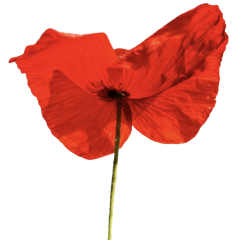Retired teacher, Jane Griffin, talks about her involvement in We Are Poppy and inspiring a new generation.
I was invited by Tayler Cresswell to take part in the Poppy project because of my experience as a teacher. I have been retired for 13 years so the chance to interact with young students again was a very exciting prospect for me. Tayler and I met up with Rosie Scott and a small group of girls at Hove Park School in Brighton.
This is what I told them:
My name is Jane. I am a teacher, an artist and a photographer.
I did my first teaching practice in this school when it was girls’ grammar school. I taught Art in a big comprehensive school for 10 years
I then moved to BHASVIC (local 6th Form college known to them) where I taught Art and Art History A level. I worked there for 18 years. Art History is a great way to learn History or even Herstory.
In 1996 I set up GCSE and A level Photography at Bhasvic. In those days there was no digital photography. The main building there was built in 1912-13 for Brighton and Hove Grammar School for Boys. In 1914, at the outbreak of the First World War, it was commandeered as a military hospital.
There is plenty that was written about the men who were treated there but very little about the women who tended them.
I love to hear people’s stories.
I would like to help you imagine your Poppy stories.
The girls we met at Hove Park were mental health ambassadors, which is why they chose to join us. They knew a bit about the First World War and the effects of shell shock on the soldiers but they didn’t know what impact it had on women. This is not surprising as little research has been made in this area until recently.
We made a great start working at the school. The sessions were lively and the pupils delighted me with their ideas, enthusiasm, energy and wit.
When Covid-19 Lockdown was announced we had to pause, hoping this would be short-lived. We still hoped to visit the Imperial War Museum and The Keep at Sussex University for research.
It gradually became clear that we wouldn’t be able to continue face to face sessions with the pupils. I was gutted!
Although the Pandemic put a stop to our sessions in school, it did, however, make the parallels between mental health now and the situation in WW1 all the more pertinent.
We had to think of ways to work on the project remotely. We set a piece of work, similar to one I have used before, to send a letter to Poppy from someone living now. A reply would then be sent back. This certainly fired up the girls’ imaginations. The evidence of research in the letters produced is impressive as is the passion felt about feminist issues.
I have been so impressed by the quality of work made by the girls who chose to take part in the project. They were already well informed about women’s issues and mental health issues.
I have loved working with young people again. It has always been a joy to see how a teacher can give a germ of an idea to inspire her students and watch as they take that idea into realms she could never imagine.

